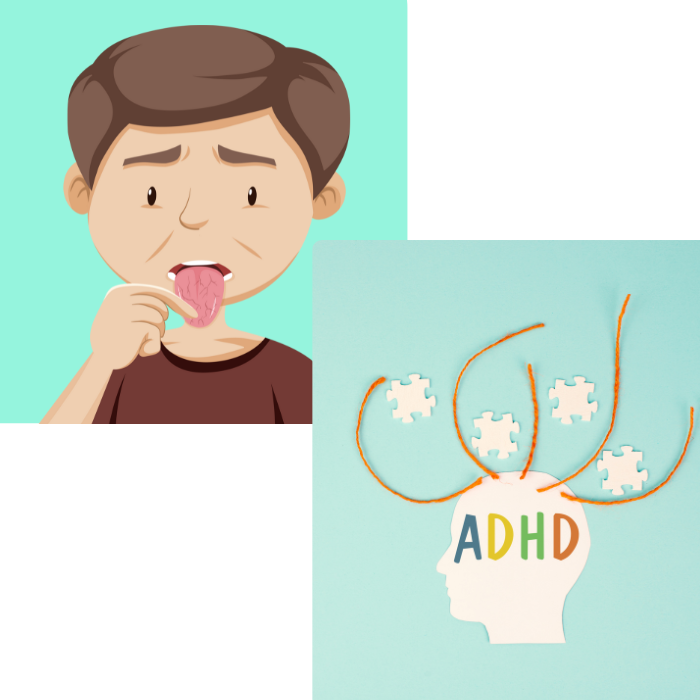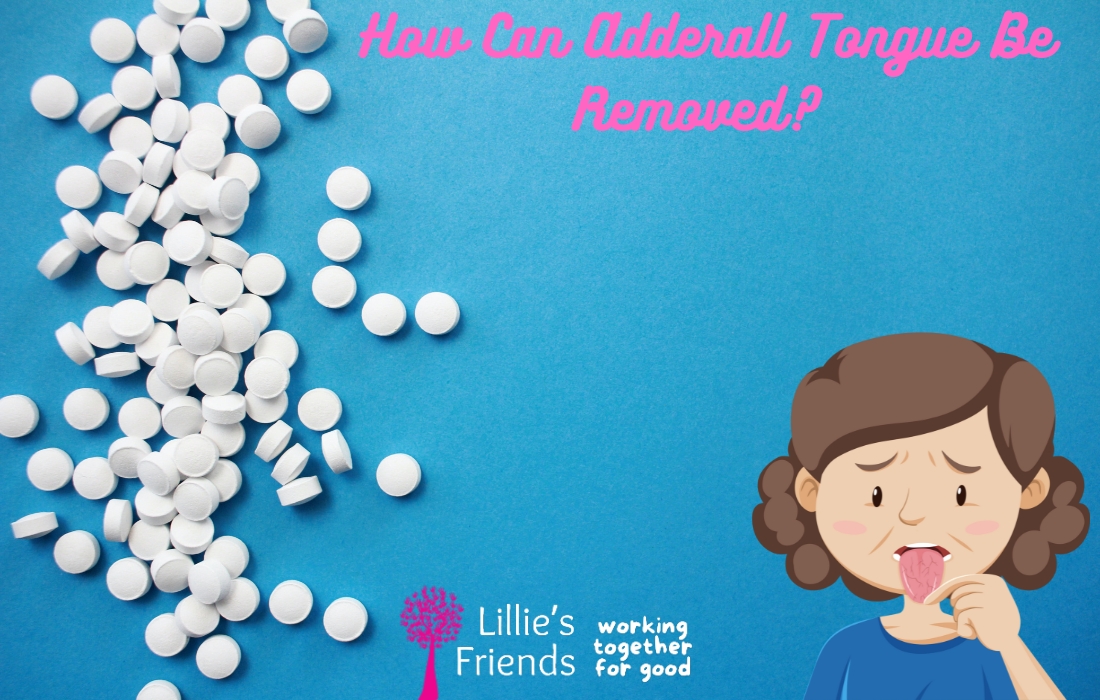Medical Disclaimer
The medicines listed on this website are only there to give you knowledge. Just because they are on the list doesn’t mean that anyone will be given them; in the end, treatment decisions are up to the healthcare workers. The medicines on this list are not all of them. Doctors may recommend other drugs, even ones that don’t contain stimulants, depending on the patient’s specific health needs and circumstances.
A combination of amphetamine and dextroamphetamine medication is known by the name Adderall. It is a medication used to treat hyperactivity, attention impairments, and impulsive conduct in individuals with ADHD. It’s also frequently used to treat excessive daytime sleepiness and narcolepsy. The use of Adderall may result in undesirable side effects for you. The Adderall tongue could be one of the side effects of taking Adderall. This post will describe Adderall tongue, along with other side effects of Adderall and a method for removing it.
How Is Adderall Used?
Adderall belongs to the class of medications known as stimulants. Through pathways in the brain and spinal cord, the central nervous system, which regulates most bodily functions, is activated more when you take stimulants.
What Feels Like After Taking Adderall?
When using a stimulant like Adderall, the following adverse effects, both physical and mental, may occur:
- Enhanced awareness
- A greater quantity of energy
- Increased focus
- An elevation in heart rate
- Elevation of blood pressure
- There is less anxiety and fidgeting
- Better capacity for sustained concentration and job completion
Two varieties of Adderall exist:
- Immediate-release ↗ kind: You should take the immediate-release type twice or three times a day if you choose to utilize it. The US Food and Drug Administration (FDA) ↗ states that Adderall mg should be started 1-2 times per day for ADHD patients, and then increased to milligrams as needed. The immediate-release variety is safe for usage by children as young as three.
- Extended-release ↗ variety: take one daily extended-release capsule. A steady supply of the medication is delivered to the body throughout the day by the single dosage. The FDA recommends taking 20 milligrams daily, and even six-year-olds can utilize the extended-release variety.
Side Effects of Adderall
The side effects of Adderall can range from mild to severe. Here is a list of Adderall’s common and serious side effects.
| Common Side Effects | Serious Side Effects |
|
|
Most of the typical side effects will go quickly. Consult a physician straight away if the side effects worsen or last longer than anticipated.
What Does Adderall Tongue Mean?
Talking too much is referred to as Adderall tongue, a side effect. It coats your tongue in a white substance that is challenging to get off. The following are the most typical indications and symptoms:
- Your tongue has a white covering ↗ on it.
- An experience on your tongue
- swallowing issues
Adderall may have a number of negative oral side effects. Some patients reported experiencing dry mouth after taking the medication, while others had swelling in their throat, face, and tongue. This is an allergic reaction to Adderall. Additionally, the medication may induce the patient to begin biting their tongue or lips ↗, a condition known as bruxism.

Why Does Dry Mouth Occur With Adderall?
Since Adderall is an amphetamine, the following factors can produce xerostomia, popularly known as dry mouth ↗.
- Vasoconstriction is the narrowing of the circulatory system brought on by amphetamines ↗. Your gums will have fewer veins, and you will produce less saliva.
- When using amphetamines, you perspire a lot all over your body. Because there will be less water in your body, there will be less water in your mouth.
- Adderall’s adrenaline may cause you to inhale deeply.
How Can Adderall Cause My Mouth to Get Dry?
There isn’t yet a therapy that focuses on Adderall specifically. However, you can use the following strategies to lessen the dryness associated with the Adderall tongue:
- Speak with your doctor: You ought to speak with a physician straight immediately if you are unable to get rid of the white coating on your tongue. They might be able to recommend alternative remedies or provide prescriptions for medication.
- To get rid of the white film covering your tongue, use an over-the-counter mouthwash: Many over-the-counter mouthwashes are available to assist you in getting rid of the white film on your tongue. Listerine Total Care is a fantastic choice because it contains chlorine dioxide.
- To remove the white film that has developed on your tongue, use a tongue scraper.
- Maintaining a healthy, germ-free mouth can be achieved by consuming adequate water.
- Use mouthwashes with baking soda, tea tree oil, and saltwater. They could come in handy at home.
How Can I Get Rid of Other Adderall Side Effects the Fastest?
You can lessen the negative effects of Adderall by following your doctor’s advice. Nevertheless, there are a few things you can take to lessen the bad effects.
- Observe your doctor’s instructions on Adderall dosage. The person who knows your problem the best is your doctor.
- As soon as you wake up, take the dose. You can prevent the fatigue that many Adderall users experience in this way.
- Avoid consuming other stimulants, such as coffee, while taking Adderall.
- Strive to keep up good sleeping practices.
- Before taking any prescription medication, let your doctor know about all of your medications and illnesses.
Concluding
I’m still confused! How can Adderall’s tongue be eliminated? You can only receive effective treatment, considering the intensity of your symptoms, from a mental health professional. Thus, schedule a consultation as soon as possible to receive the best possible ADHD drug treatment.











